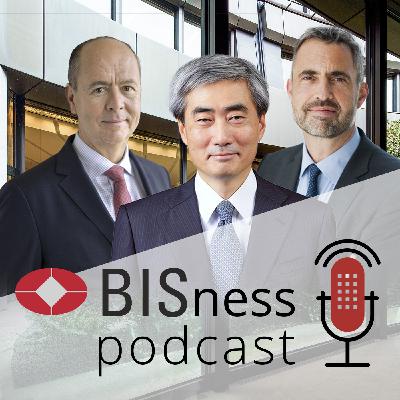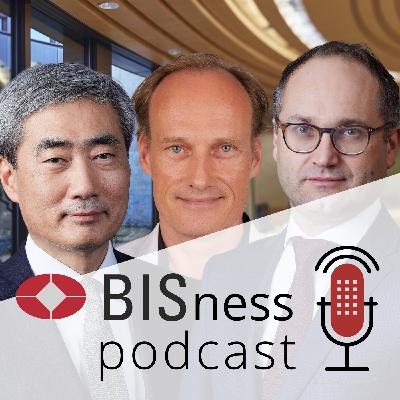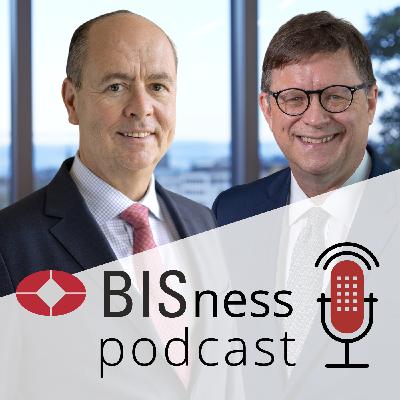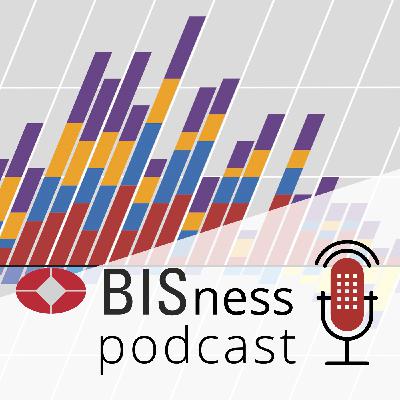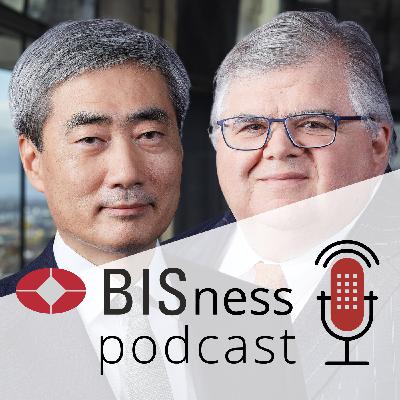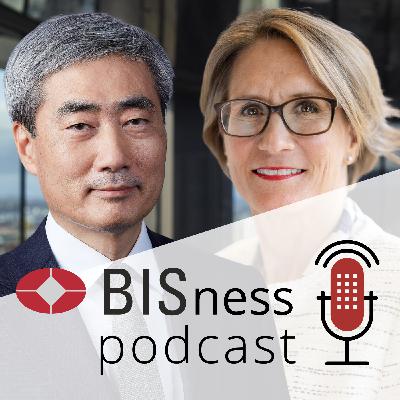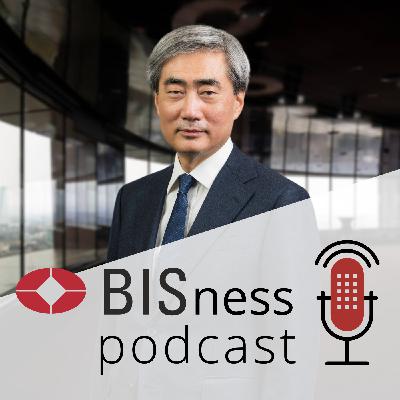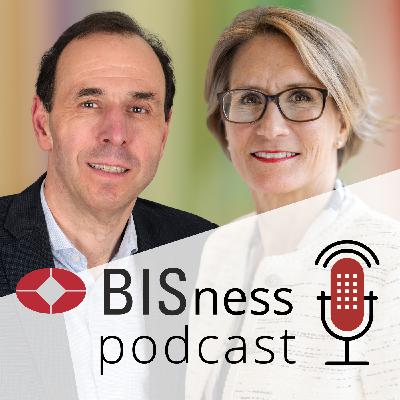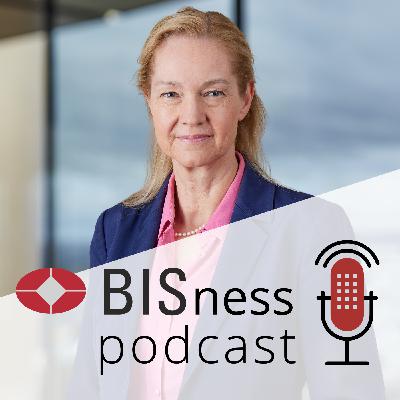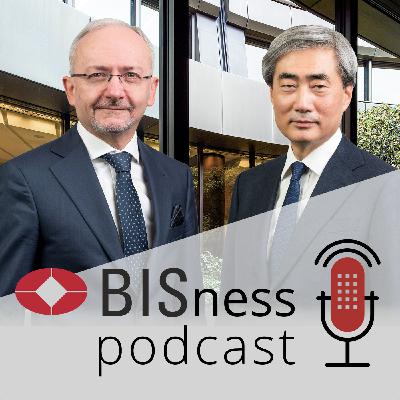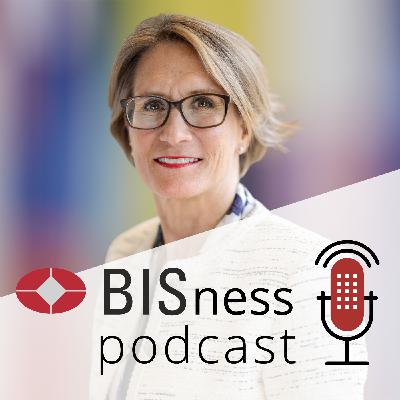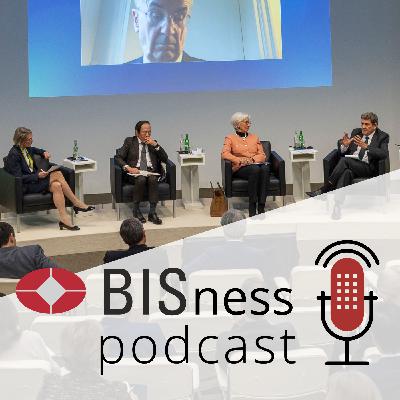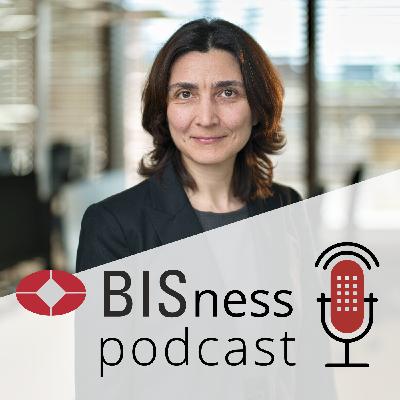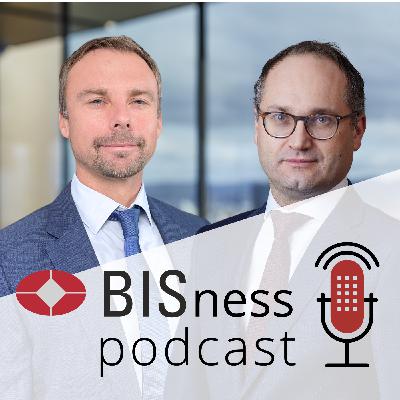Discover BISness
BISness

BISness
Author: Bank for International Settlements
Subscribed: 145Played: 2,437Subscribe
Share
© Bank for International Settlements ("BIS")
Description
Experts from the Bank for International Settlements (BIS) explain their work and discuss current issues for the global economy. As a hub for central banks and other financial regulatory and supervisory authorities, the BIS seeks to build a greater collective understanding of the world economy, foster international cooperation and support policy making.
106 Episodes
Reverse
Hyun Song Shin summarises the December 2025 BIS Quarterly Review and, along with Gaston Gelos and Frank Smets, answers journalists' questions about market developments, the state of the global economy and fiscal policy.
Our latest BISness podcast analyses the 2025 Triennial Survey on FX and interest rate derivatives markets. Hyun Song Shin, Andreas Schrimpf and Goetz von Peter discuss market shifts and the implications for the global financial system.
Morten Bech and Jon Frost explain the concept of tokenisation and how it can improve the international financial system.
Gaston Gelos and Frank Parker explain how the life insurance industry has undergone a profound structural transformation since the Great Financial Crisis, amid a prolonged period of exceptionally low interest rates and evolving regulatory frameworks.
Hyun Song Shin summarises the September 2025 BIS Quarterly Review and, along with Gaston Gelos and Frank Smets, answers journalists' questions about market developments, the state of the global economy and fiscal policy.
Agustín Carstens, Andréa M Maechler and Hyun Song Shin brief the media on the main messages of the Annual Economic Report. Read more: https://www.bis.org/publ/arpdf/ar2025e.htm
Agustín Carstens and Hyun Song Shin say trade disruptions and policy uncertainty cloud the global economic outlook, making sound public finances and price stability critical for sustainable growth.
Hyun Song Shin and Andréa M Maechler brief the media on the main messages of Chapter III of the Annual Economic Report. Read more: https://www.bis.org/publ/arpdf/ar2025e3.htm
Hyun Song Shin explains how tokenised platforms with central bank reserves, commercial bank money and government bonds can underpin the next-generation monetary and financial system.
The BIS marked its 95th anniversary in May 2025. Andréa M Maechler and Tobias Straumann talk about its origins and how its role has developed over the years.
Johannes Ehrentraud explains the evolving relationship between banks and tech firms in the financial sector.
Hyun Song Shin summarises the March 2025 BIS Quarterly Review and, along with Gaston Gelos and Frank Smets, answers journalists' questions about market developments, the state of the global economy and fiscal policy.
Cecilia Skingsley reflects on the first five years of the BIS Innovation Hub and discusses how it can continue to be useful to the central banking community.
Claudio Borio and Hyun Song Shin summarise the December 2024 Quarterly Review and answer journalists' questions about financial market developments and the economic outlook.
Andréa M Maechler explains why price stability matters for consumers, employers, and investors and how central banks provide trust in money on three fronts, among other topics.
Jon Frost of the BIS Office for the Americas and Holti Banka from the World Bank dive into fast payments and central bank digital currencies, exploring their key differences and similarities, and looking into what the future holds.
Bank of France Governor François Villeroy de Galhau, Bank of Japan Governor Kazuo Ueda, Bank of Spain Governor José Luis Escrivá and European Central Bank President Christine Lagarde discuss the implications of climate change for the real economy and central banks. Link to event page: https://www.bis.org/events/green_swan_2024/overview.htm
Deniz Igan explains the drivers and implications of the strong growth of housing costs despite a decline in inflation.
Claudio Borio and Hyun Song Shin summarise the September 2024 Quarterly Review and answer journalists' questions about financial market developments and the economic outlook.
Andreas Schrimpf and Vladyslav Sushko explain the drivers and implications of the unwinding of carry trades, which were associated with financial market turbulence in August 2024.


